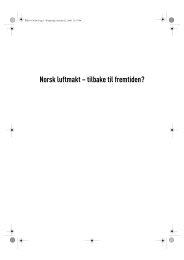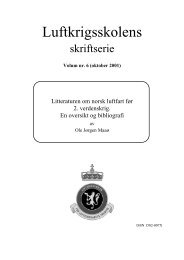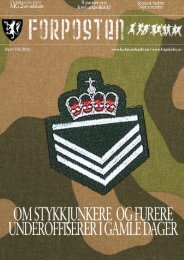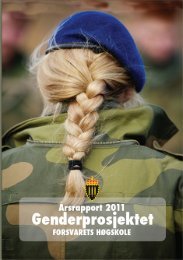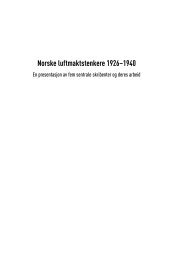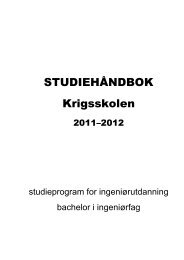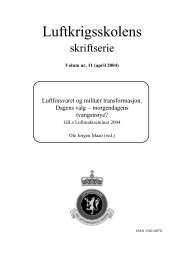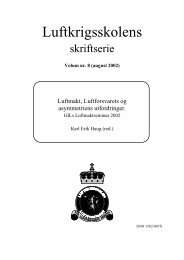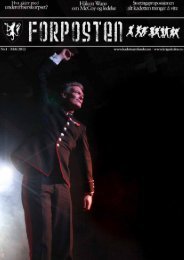Wilhelm Mohr
Wilhelm Mohr
Wilhelm Mohr
Create successful ePaper yourself
Turn your PDF publications into a flip-book with our unique Google optimized e-Paper software.
PART IV – 9 April – From the Past to the Future<br />
on fire. At least, this was the case for the pilots of my age; the English<br />
will have to express their own reaction themselves. A Norwegian<br />
military agreement with Great Britain was first established on 26 May<br />
1941, when Trygve Lie took over as Foreign Minister. Much came out<br />
of the so-called ’Camp Little Norway’, by the way. It became a beacon<br />
of recruitment and in an admirable tempo we had our four Norwegian<br />
Squadrons established and put into operational duty in Iceland, Scotland<br />
and southern England. Yet what would have happened if the Royal<br />
Air Force had not won the Battle of Britain<br />
For my part, I ended up in one of the two Norwegian fighter squadrons.<br />
These were put under the operational command of the RAF, and it was<br />
a privileged group that was given the opportunity to retaliate against<br />
the enemy. There was no uncertainty or doubt; we had top material<br />
and we had ourselves. The tasks and usefulness gave deep satisfaction,<br />
whereas the gratitude towards allied friends is trivial. The latter took<br />
losses too, for their own sake and for ours.<br />
Is it strange, then, that it is the contrast between this and the experiences<br />
from Norway that is the most glaringly obvious The War<br />
could have shown many positive sides at home, even impressive ones<br />
during the least favourable conditions. Yet there were also some aspects<br />
that were anything but good. For instance the work on Værnes airfield<br />
already mentioned, and later the notions of ’the cooperative line’ 38 at<br />
home in Norway, in its various forms and shapes, and also the presidency<br />
that wanted to remove the King, and so forth – it was not easy.<br />
As previously mentioned, even in England we experienced Norwegian<br />
political hesitation, and the less contact with this environment the better.<br />
The King, yes, but that was about it. And therefore the King’s loyalty<br />
to the Government was both admired and respected. What would<br />
the Norwegian foothold have been like without him<br />
However, this did not preclude us from seeing positive sides as well.<br />
The Merchant Fleet was followed with respect and admiration, and<br />
38 In Norwegian: `samarbeidslinjen’.<br />
109




